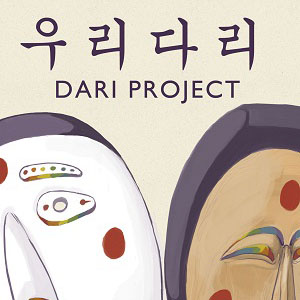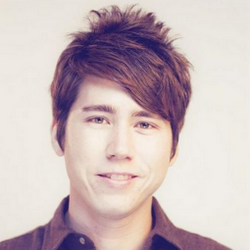I’m Not Cookie-Cutter
I’m 42 and I’m not successful, but I’m Korean American. (Am I allowed to say that?) My story begins in Seoul, Korea in 1970, the year of the dog, when I was born. I was born into a very broken family.

I’m 42 and I’m not successful, but I’m Korean American. (Am I allowed to say that?) My story begins in Seoul, Korea in 1970, the year of the dog, when I was born. I was born into a very broken family.

“What’s your middle initial?” adults would demand as they filled out my forms.

Matt Chun’s story is from the Woori Dari book of the Dari Project, which is a collection of personal testimonials on the experiences of LGBTQ people of Korean descent.
KoreanAmericanStory.org has made, and will continue to make, intentional effort to share the stories from those whose voices have not been heard in the past by the mainstream Korean American community, including adopted, multi-racial and LGBTQ Korean Americans. If you’d like to share your story, please contact us

Somewhere in Korea, deep in the heart of Pyuang Chang Kun of Kangwon Province, a young mother stands alone.

About seven years ago my son told me that he was gay. If I just met him on the street I would never know that he was gay, so when he was young and talked about having a farm with a big family, I always assumed that he meant with a wife and their biological children. Of course, this changed after he came out to me.
After learning that my son was homosexual, for a long time I went through a period of significant sadness. My sadness, however, was less about the fact that he was gay, than because I knew that as a gay man he had to face a lot of bigotry and prejudice in his day-to-day life. Even though we live in the United States and people are supposed to be more open-minded, the world is a bigoted place and I was scared for him. I feared that my son, like Matthew Shepherd, might get attacked or even killed.

Like most mixed-race Americans in their 30s, my youth included thousands of “What are you?” questions. The perpetrators were a diverse bunch, from biracial classmates to the stranger at the crosswalk.
At first, preparing for these daily interruptions made me constantly tense. But children are great adapters, and in time my identity incorporated being conspicuous. At 19, I even made a job of it. As a freshman in college, I started a mixed-race magazine and became the poster boy for America’s multiracial lot.

I was eleven when my father, a Korean immigrant in the U.S. army, tried to drag me to a psychiatrist. My symptoms? Unusual thoughts, erratic behavior, filial disobedience: I suddenly refused to eat meat.

Ever since I left Southern California for college in Connecticut, my mother has always waited while I wind through the airport security line. She smiles and waves wildly until I make it past screening and turn around to wave goodbye one last time. Except once.

I’m not the only Korean kid whose parents acted as if becoming a lawyer or a doctor were the only career options. For my parents, the doctor path was the first line of offense.

In June 1986, my husband, our four-year-old son and I were strolling through the Sinchon market in Seoul. In my arms, I carried our seven-month-old daughter, whom we’d met for the first time four days before. An ajumoni grinned up at us from where she squatted beside her bins of fresh vegetables and called out in Korean, “She looks just like her mother!”